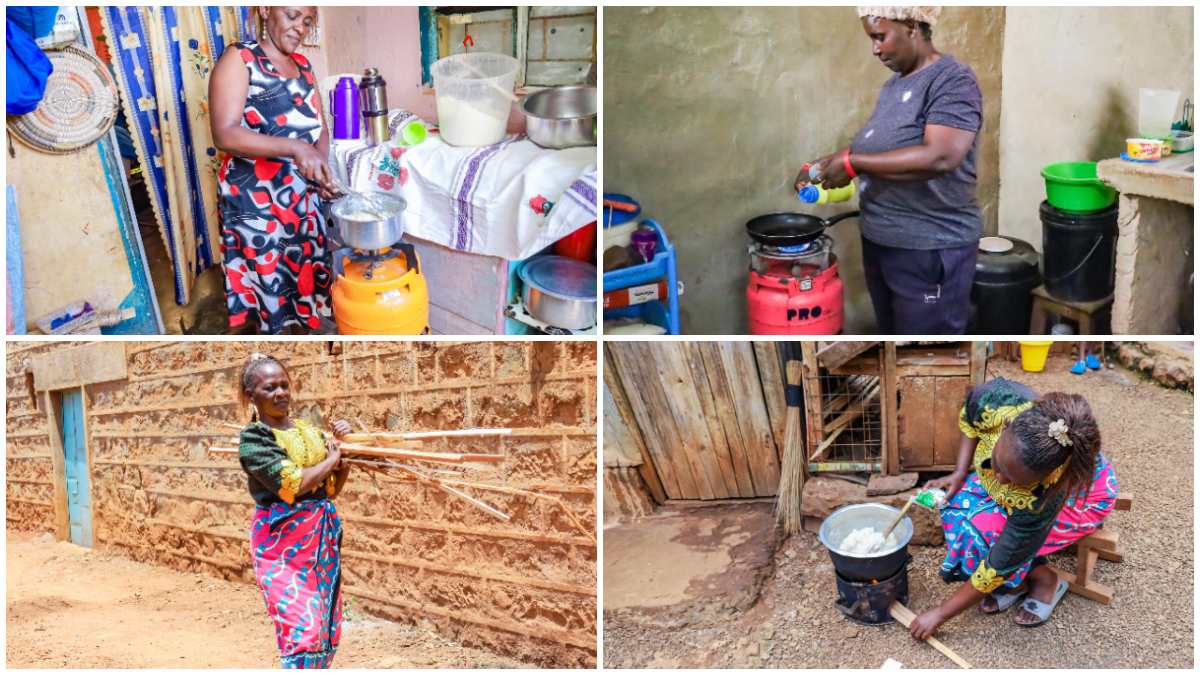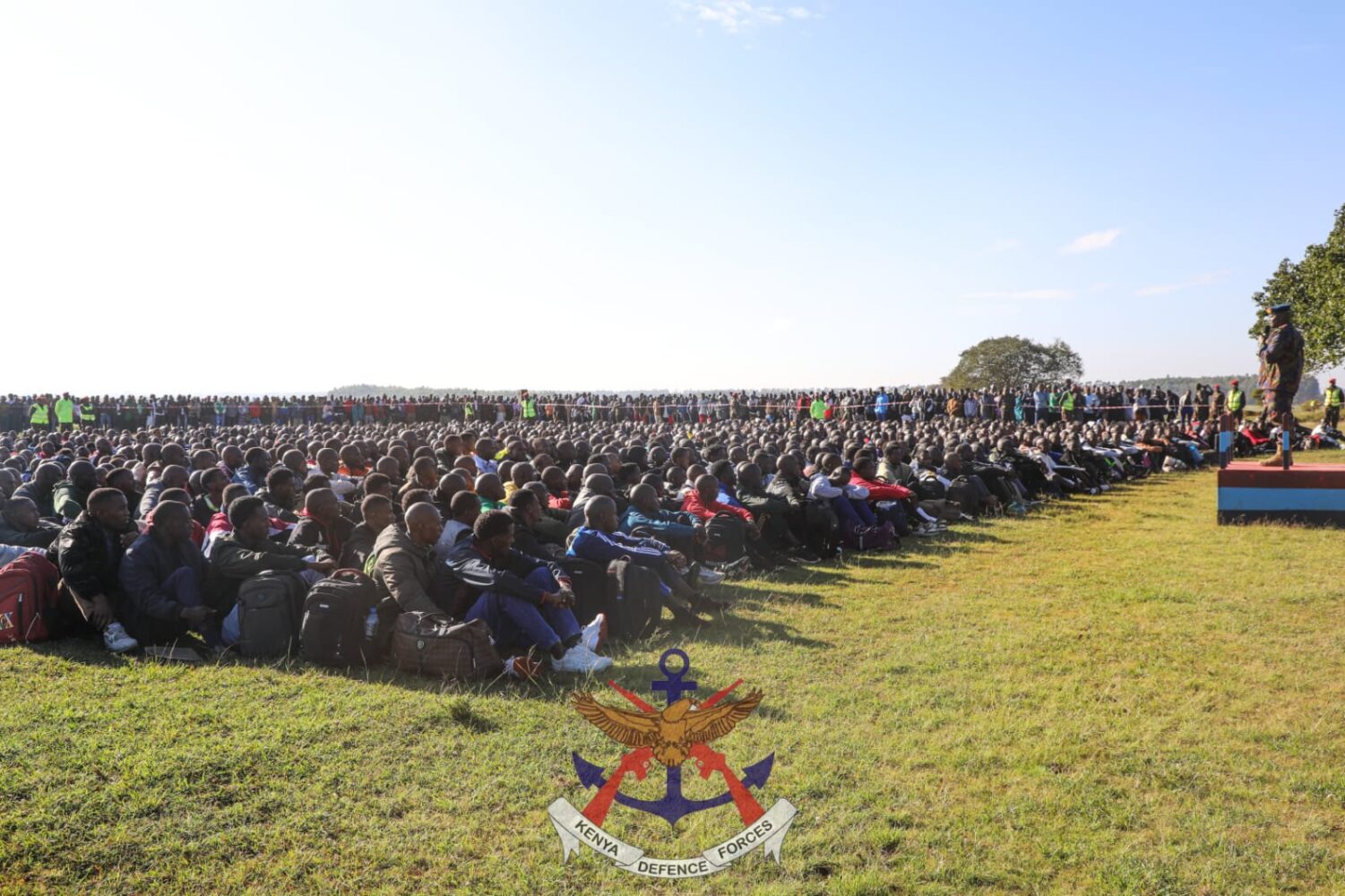The push for the adoption of clean and efficient energy for cooking in Kirinyaga County is bearing fruit, with over 6000 households having transitioned from use of firewood to liquefied petroleum gas (LPG).
In the last two years, an initiative by the County Government of Kirinyaga, to help in tackling climate change and foster development has distributed about 6400 free meko gas cookers, enabling the families’ transit from use of firewood and charcoal.
The initiative by Governor Anne Waiguru has been praised for helping reduce exposure to indoor Household Air Pollution (HAP) which according to health experts is responsible for up to millions premature deaths each year from pneumonia, chronic lung disease and lung cancer.
Most of the residents of Kirinyaga still uses traditional biomass like wood, charcoal, agricultural residues and animal waste for cooking.
Through the Financing Locally-Led Climate Action (FLLoCA) Program Governor Waiguru distributed 5800 free meko gas cookers in June this year while another batch of 600 had been given out through the ward-based programme to families bordering Mt. Kenya forest in April last year.
Apart from reducing health risks associated with HAP, the initiative is aimed at helping families reduce tree felling for firewood as well as greenhouse gas emission caused by use of wood fuel.
The support is part of Waiguru’s ongoing campaign to promote environmental conservation, climate resilience, and sustainable livelihoods in the county.
One of the beneficiaries, Hellen Wanjiku, a resident of Mjini slum in Kutus town, expressed her gratitude for the program, saying the free meko gas cooker has transformed her daily live.
“We are thankful to Governor Anne Waiguru for giving us these gas cylinders through the FLLoCCA program for free. I previously relied on charcoal jikos, which produced lot of smoke that would make me cough and my eyes teary,” she said.
Wanjiku said that the meko gas cooker has enabled her to spend less time preparing breakfast for her school going children.
“In the morning, when preparing breakfast for our children, getting a charcoal or wood jiko started was a struggle. Now, with these modern gas cylinders, I can cook quickly at any time without any hustle. It has helped conserve the environment and reduced sicknesses caused by inhaling smoke. I don’t have to go looking for firewood or buy charcoal anymore, we just refill the gas and get back to cooking. We are very happy,” Wanjiku added.
Joyce Munene, another beneficiary from Gatuto village, echoed similar sentiments, emphasizing the health and environmental benefits of the initiative.
“This program has been very helpful, waking up to light fire using charcoal or firewood, especially during the rainy seasons was the worst nightmare for me. Now it’s one touch and am already cooking, this a dream come true,” she said.
Governor Waiguru says there is enormous potential for the rural families to switch to LPG and other modern fuels for cooking; exploiting that potential promises to improve the quality of their lives.
She said the meko gas cookers is helping promote use of clean energy and end ongoing deforestation, support living by reducing indoor pollution.
“By shifting to clean cooking, we are effectively saving over 500 mature trees per year and saving our women and children from prolonged exposure to smoke that poses health problems,” the Governor noted.
The County Government also plans to establish a clean cooking program at Kibingoti Polytechnic, where women’s groups will be trained in making energy-saving jikos.
Margret Wambui, a Public Health Officer says the meko gas cooker initiative has a far reaching effect on lives women and children as it saves them from ill-health and the loss of productivity caused by HAP.
“Majority of those affected by the indoor pollution are women and children, as women are usually responsible for cooking and small children often remain close to their mothers,” she added.
Wambui says exposure to indoor air pollution from cooking using traditional biomas causes the premature deaths from lung diseases, cardiovascular disease, pneumonia and chronic obstructive pulmonary disease, as well as ill-health and the loss of productivity among many more.
“Measured in years of healthy life lost, HAP is a serious environmental health risk factor of our time that is mostly overlooked,” she said.
In economic terms, Wambui said use of gas is helping families reduce health-related spending expenditure and the productivity gains that result from less illness and fewer deaths, as well as the time saved in collecting traditional fuels and cooking with them.
County Executive Committee Member (CECM) for Environment, Energy, Climate Change, Natural Resource, Water & Irrigation James Mutugi said the clean energy programme is promoting community resilient towards climate change by actively empowering people with practical and lasting solutions to combat the challenge.
“Climate change continues to pose serious challenges to our communities, but through such initiatives, we are taking bold steps to empower our people to enhance adaptation and promote sustainable growth,” he said.
Several other legislative, institutional and strategic climate change mitigation interventions have been undertaken by the County Government so as to help the community cope with the phenomena. The measures include; establishment of a special fund for climate actions, enactment of laws for solid waste management, establishment of climate change directorate, training and capacity building for officers on climate change, development of county spatial plan.
Others are the Wezesha Kirinyaga program meant to improve farmers resilience to climate change and increase their profitability and minimize farm losses, promotion of agroforestry through distribution of high value fruit trees like Hass avocado and macadamia to farmers, undertaking of over 60 community water projects to improve access to water for both domestic and irrigation, tree planting, water harvesting among others.












